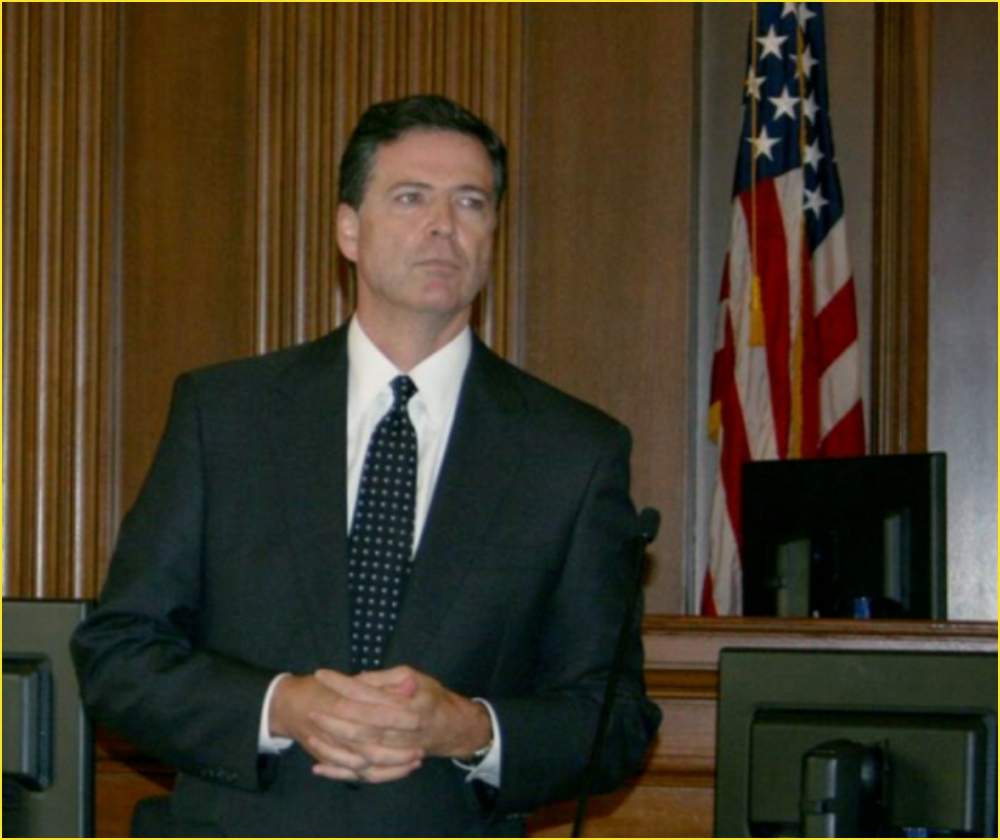A federal magistrate judge on Wednesday, November 5, 2025, delivered a sharp rebuke to Justice Department prosecutors handling the criminal case against former FBI Director James Comey, criticizing what he called an “indict first, investigate second” approach in a prosecution widely viewed as politically motivated and ordered at the direction of former President Donald Trump.
Magistrate Judge William Fitzpatrick, overseeing a pretrial hearing in Alexandria, Virginia, raised concerns about how prosecutors have handled key evidence and privileged materials in the case — one that legal observers are calling “highly unusual” even by the politically charged standards of the Trump era.

A Case Born of Presidential Pressure
Comey, who was fired by Trump in 2017 and later became a prominent critic of his presidency, is facing a two-count indictment accusing him of lying to Congress in 2020 about the FBI’s handling of the Trump-Russia investigation.
But the roots of the case, according to court filings and reporting by Politico, trace directly to Trump’s own demands. In September, the former president reportedly ordered Attorney General Pam Bondi to “bring immediate prosecutions” against his perceived political enemies — including Comey. Trump also pushed Bondi to install his former personal lawyer, Lindsey Halligan, in a key federal prosecutorial post in Virginia.
Days later, Halligan personally secured Comey’s indictment before a grand jury — without the participation of any career DOJ prosecutors.
That solo move by Halligan, a Trump loyalist with little federal trial experience, has fueled Comey’s claim that the prosecution is a “vindictive” political hit job masquerading as justice.
Judge’s Warning: ‘At Their Own Risk’
During Wednesday’s 50-minute hearing, Fitzpatrick took prosecutors to task over their handling of materials seized from Comey associate and former adviser Daniel Richman. The materials, collected under four search warrants in 2019 and 2020, may include communications protected under attorney-client privilege — since Richman briefly served as Comey’s lawyer.
When Fitzpatrick asked the DOJ to explain how it reviewed or segregated potentially privileged material, prosecutors struggled to give a clear answer.
“I’m frustrated that we still don’t know what you’ve done with this evidence,” Fitzpatrick said, ordering prosecutors to turn over all seized materials to Comey’s defense team by Thursday evening.
He also directed the DOJ to provide transcripts of the grand jury proceedings that led to Comey’s indictment, warning prosecutors that if they had inadvertently used privileged information to secure the charges, “it could have consequences for the entire case.”
“They’re entitled to this information quickly,” the judge added. “And you proceed with it at your own risk.”
Assistant U.S. Attorney Tyler Lemons, brought in from North Carolina to assist Halligan, admitted that investigators had recently stumbled upon material that might be privileged and had since “isolated [it] on a desk in FBI headquarters.”
“We’re not going to touch this evidence until the court approves it,” Lemons told the judge.
A Divided Judiciary and Growing Skepticism
Judge Fitzpatrick isn’t the only jurist raising red flags.
U.S. District Judge Cameron Currie has ordered prosecutors to hand over transcripts of Halligan’s grand jury appearance as she reviews whether her appointment — made under direct presidential pressure — was even valid. If Currie rules against the DOJ, it could effectively collapse the entire case before trial.
Meanwhile, U.S. District Judge Michael Nachmanoff, who is expected to preside over the January trial, has made clear that he intends to keep the proceedings moving swiftly, despite the growing legal turbulence.
Comey’s Quiet Defiance
Comey appeared in court flanked by his legal team, including prominent defense attorney Patrick Fitzgerald, and his family — his wife and son-in-law, former prosecutor Troy Edwards Jr., sat in the gallery.
The former FBI chief said little during the hearing, occasionally nodding as his attorneys conferred. His defense team has complained about delays in accessing classified materials essential to building their case, noting that Fitzgerald has yet to receive a required security clearance to review sensitive evidence.
Despite those hurdles, Comey’s team said they intend to stick to the accelerated trial schedule — a move signaling confidence in their defense and perhaps a desire to challenge what they describe as a “political theater” prosecution.
A Case About More Than Comey
For all the procedural skirmishes and courtroom tension, this case has grown into something larger — a test of how deeply political influence can reach into the U.S. justice system.
Legal analysts say Trump’s apparent hand in the indictment raises profound constitutional concerns about executive overreach and the weaponization of law enforcement.
If the courts find that Halligan’s appointment or conduct tainted the process, it could set a precedent with ripple effects across future administrations — reinforcing guardrails meant to keep criminal prosecutions independent from presidential politics.
As one former federal prosecutor put it bluntly, “This isn’t just about Comey’s fate — it’s about whether the Justice Department still belongs to the law or to whoever occupies the Oval Office.”
